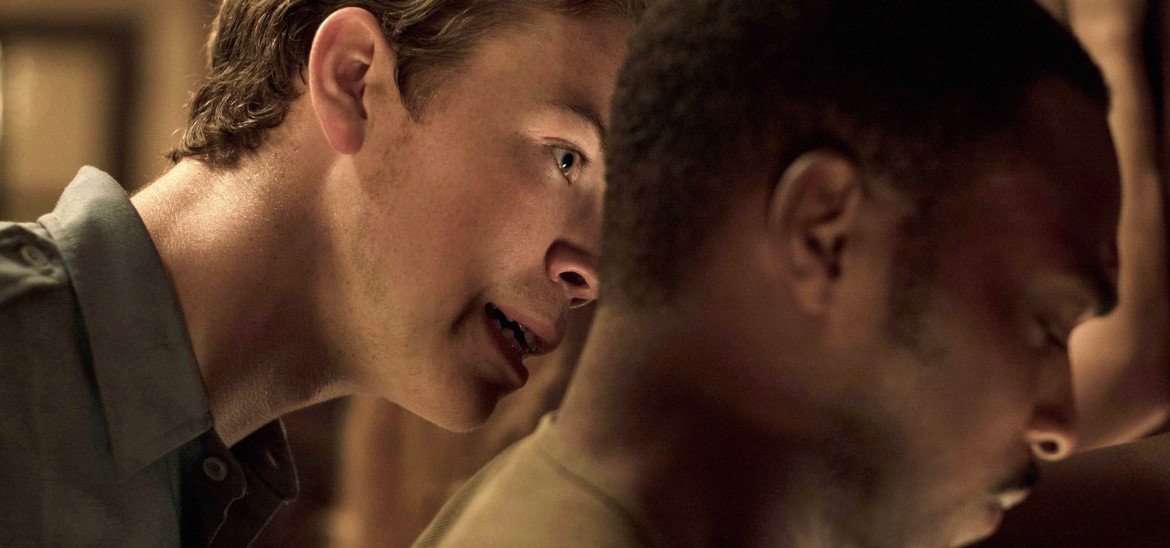Into Film Clubs
Find out everything you need to know about starting an Into Film Club.



Detroit is the latest film from Kathryn Bigelow, best known for being the only female filmmaker to win the Best Director Oscar® (for The Hurt Locker in 2010). Its story is both true, and depressingly topical. In August 1967, as parts of the world were embracing 'The Summer of Love', the American city of Detroit erupted in five days of racism and violence. On the third night, a report of gunshots resulted in members of the police department, the national guard, and a local private security officer entering the Algiers Motel. Once there, police officers forcefully interrogated a group of Black men staying there, conducting a 'death game', in an attempt to intimidate someone - anyone - into confessing. By the end of the night, three young men had been gunned down by officers, and nine Black men and two white women badly beaten. No gun was ever found.
The film is centred around a reconstruction of these events, played out in unbearably tense fashion in a style that's sometimes reminiscent of a horror film. All the more frightening for being true, the film generates a sense of anger and helplessness in its audience, who are made to feel as if they are there as a result of the film's up-close-and-personal verité style.
Fifty years after the events of this film, with riots once again taking place on American streets and with frequent examples of institutional racism from law-enforcement, it seems like little has been learned. However, Detroit demonstrates how looking to the past can help us to see the present from other perspectives.
Any film dealing with real events has a responsibility to tell its story fairly - something even more important when the issues are as sensitive as those in Detroit. To ensure as much accuracy as possible, screenwriter Mark Boal worked with a team of researchers, uncovering newspaper, radio and TV reports, court records, FBI investigation materials, sociological research, and documents never publicly released. The filmmakers also had three witnesses on hand throughout shooting, providing unique insight into the chaotic interrogation, and helping piece together events from different perspectives.
Determined to create as immersive an experience for the actors and audience as possible, Bigelow used some unconventional techniques. During the casting process, she engaged actors in a series of improvisational role plays, creating scenarios that mimicked the script, to see how they responded to fluid, chaotic situations. Actors were also not told which role they would be playing until after arriving on set. This was intended to keep the actors off balance and draw a spontaneous intensity out of their performances. They were also denied the preparation that usually forms part of any filming: with no time to plan, their reactions on camera were always honest and in-the-moment.
Bigelow and cinematographer Barry Ackroyd utilised a unique way of capturing the disorientation of the key sequences, particularly the brutal interrogation. The hallway in which the motel guests were stationed against a wall was evenly lit, allowing multiple cameras to capture every moment without having to stop to change angles and re-light. Cameras were never stationary, enabling a fluid, unobtrusive camera movement and a fully immersive experience. Actors were not performing for the camera; they were acting as if in a play, not knowing which camera was on them and when. It required an intensity of focus unusual for cinema acting.
Somewhat unexpectedly, the film begins with animation. Wanting to succinctly provide socio-historical background into Detroit's culture in 1967, Bigelow used the work of African American artist Jacob Lawrence to describe the decades leading up to the civil unrest of the 1960s, helping the viewer to understand the anger building in the country. Other films that use animation to tell hard-hitting non-fiction stories include Waltz With Bashir and Tower. Archive footage is also used to deepen the immersive experience for the audience.
The film features two rising stars of British cinema: John Boyega and Will Poulter. Boyega plays security guard Melvin Dismukes, a decent man who was in the wrong place at the wrong time. He went to the Motel to serve as a guardian to the young men being interrogated by the police, thinking he could do good by being present to look after them. Ultimately, he was blamed for trying to do the right thing. Arrested and accused of murder, Dismukes was only acquitted after a gruelling trial, with members of the Black community also turning on him.
Poulter, meanwhile, plays Philip Krauss, the policeman leading the 'death game interrogation' and coercing his fellow officers into following his lead. The character is not based on any one individual but on testimony from first-hand accounts of what transpired - his character reflects the behaviour of the officers implicated. Often deranged, Krauss' behaviour becomes all the more repellent when it infects his fellow officers whose training requires them to provide a united front and back each other up, come what may. It is a dramatic, but telling example of the dangers of peer pressure, or collective responsibility, and how bullying, controlling behaviour can have the most horrific of consequences.
As Boal says: "One of the values of looking at the past is that it enables you to look at the present from another perspective. And to ask questions such as 'how much has changed?' And 'how much has not changed?'". Despite its historical setting, Detroit fits into a broader cultural discourse around racial issues in the United States today that has been powerfully depicted in films such as Fruitvale Station, Get Out, and Dear White People.
Telling a shocking story that is largely forgotten, ignored, or misunderstood by most of the world, Detroit part of a tradition of films raising social awareness around topical issues. Films such as Syriana, I, Daniel Blake and Standard Operating Procedure have all achieved commercial success covering complex topics, using the mass medium of film to instigate debate. By raising awareness of real-life issues in society, filmmakers are trying to help us to collectively move forward. As Bigelow says: "If the purpose of art is to agitate for change, we need to be willing to listen. I hope this film will encourage some small part of that dialogue."
Our reporter Nada sat down with two of the stars of Detroit, Will Poulter and Hannah Murray, to find out more about their roles and what it was like filming such a provocative and relevant film. Murray discussed how important she feels the film is, as well as her pride at working with a director as renowned as Kathryn Bigelow, while Poulter spoke about developing understanding and empathy for others by listening, and revealed how he takes pride in films that can affect social change, and why film is a great medium to achieve that end.
Explore the film further in our podcast.
Hear more from the Curation Team in our Into Film Recommends Podcast Series. Also available on itunes.
Viewing 4 of 4 related items.

Get in touch with your article ideas for the News and Views section.